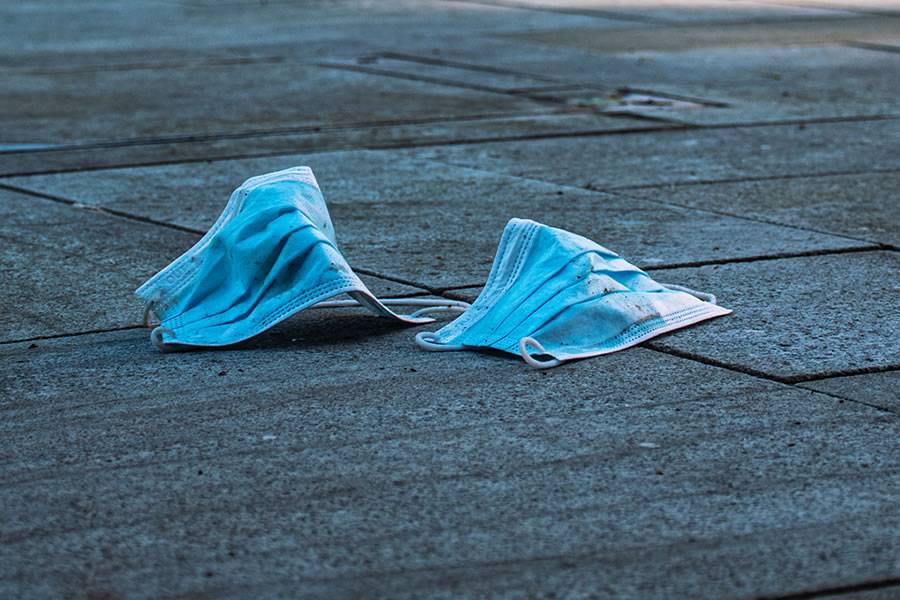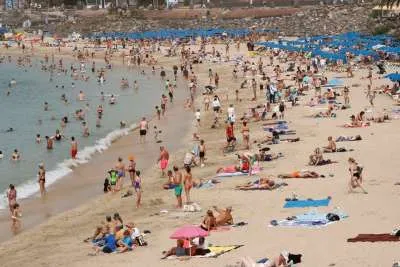Spain maintains its plan to eliminate masks despite the increase in Covid cases
- 14-03-2022
- National
- Canarian Weekly
The unexpected change in the trend of incidence rates across Spain, and including the Canary Islands, will not change the plans of the Ministry of Health to end the mandatory use of masks indoors, according to the Minister of Health, Carolina Darias, yesterday, who said that the change will come "sooner rather than later".
The fact that the Minister of Health has now said this makes it more of a reality, because, as the Prime Minister, Pedro Sanchez, said last week, the decision when mandatory use ends is her, and her departments, decision.
She also confirmed that there will be no change yet to how the virus and cases are monitored, because the situation still calls for caution as the pandemic is not over yet, from a health perspective.
For the first time since Spain reached the peak of the sixth wave on January 24th, the incidence rates went up on Friday. However, it was only a very slight increase, and the reason may be due to the carnival celebrations the week before, as the age group between 12 and 19 years old has the highest 14-day incidence rate over 700.
But the point is that this indicator has stayed at 430 cases per 100,000 inhabitants over 14 days, which is still high risk, according to the 'Covid traffic light', and Spain has not had less than 18,000 daily infections for three months.
The end of the latest restrictions on capacity, closing times, and use of the Covid passport, the reduction of immunity provided by vaccines in people who have only had two doses and no booster, or the high contagiousness of omicron and in particular, of the BA.2 variant, explain this new wave that has caught all countries trying to aim towards the new normal. Even the hardest hit have already ended all limitations, or want to do so soon, with Germany easing their restrictions on March 20th.
In Spain, the best news is that the vast majority of current infections are very mild, so nationally, hospitalization for Covid is at low levels. Coronavirus patients represent just 3.84% of the occupancy of beds on the ward and 7.55% in intensive care, the lowest in the last three months.
On the contrary, epidemiologists recall that the more cases occur, the more deaths end up being counted: in Spain, 541 deaths were reported last week, and that the disease, even in the mildest cases, can cause long-term effects in up to 20% of people infected.
Covid cycles and increases in cases:
“In the short term, we are not going to reach a point of elimination of the virus. There will be cycles and increases in infections," predicts Pedro Gullón, professor of Preventive Medicine at the University of Alcalá de Henares. A fact that, in his opinion, “can hinder response plans, which must be adapted to the new situation.”
“It is too early to assess how the trend is changing, but perhaps we will have to wait a bit and observe the evolution of infections before we decree the end of the mandatory use of masks indoors,” he said.
The secretary of the Spanish Society of Preventive Medicine, Jesús Molina Cabrillana, believes that indoor masks should be kept “until at least summer”, although the relaxation of their use should begin earlier in children. “The new normal is not going to arrive overnight,” he maintains.
[BOXPOSTS
Other articles that may interest you...
Trending
Most Read Articles
Featured Videos
TributoFest: Michael Buble promo 14.02.2026
- 30-01-2026
TEAs 2025 Highlights
- 17-11-2025


























































